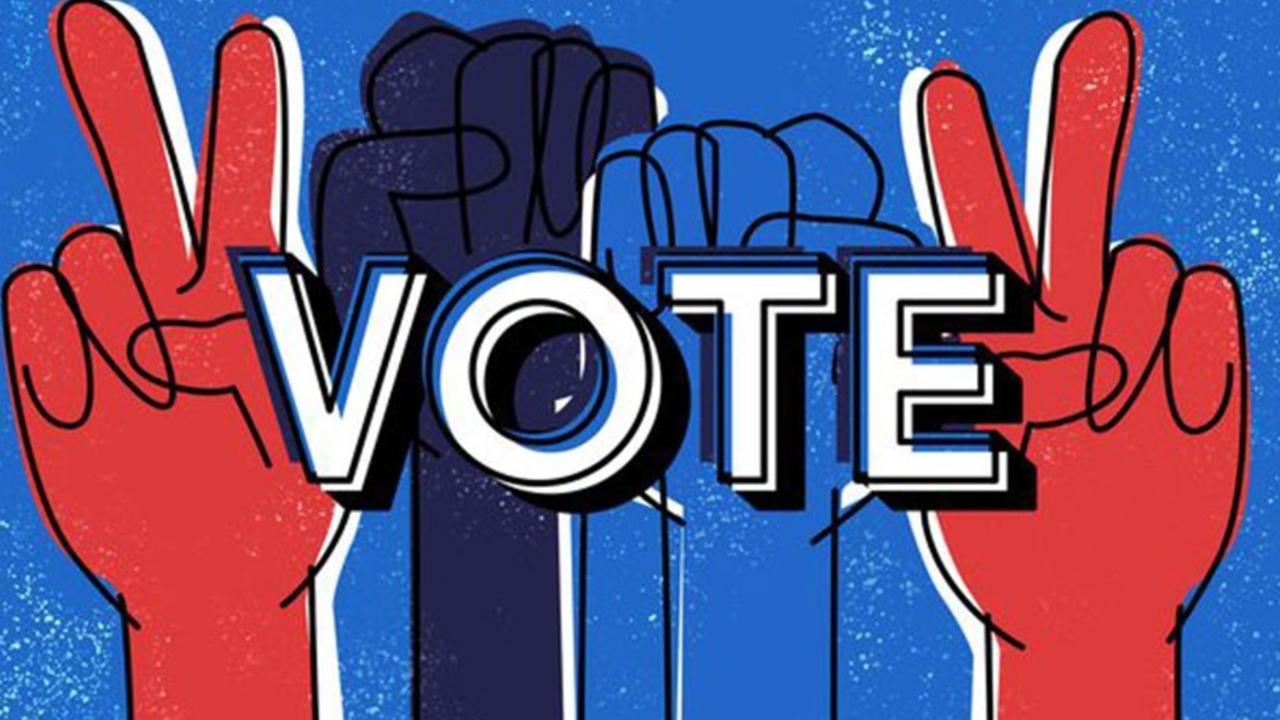Talking about Values and Politics: Something’s Gotta Give

Image Credit: Palo Alto City Library
Four years ago, the day after the election, I walked into the offices of a company that is an international powerhouse in the communications industry. Several months before, I had been scheduled to be onsite, offering anti-bias workshops for executives who had flown in from various regional offices across the U.S. A long planning process had occurred but not one of the creative teams had prepared communications in the event Donald Trump became the newly elected president. Not one. Everyone was running in circles trying to figure out what to do. Everything seemed blurry and surreal. Regardless of political stance, most people were shocked by the outcome. That day was a mess, an incredibly unproductive, emotion, and confusion-filled mess.
We can’t know what additional surprises this election will hold, but we can learn from recent experience. Today is, with so much attention on the attributes and expectations of leaders, also a good day to really focus on how you are showing up. Perhaps you are asking yourself: “In this sharply divided moment, how can I stand firm in my espoused values without devolving into political divisiveness?”
My best answer: Don’t shy away from trying and make an intentional choice about your methods, like multipartial communication techniques.
The world, as we are currently experiencing it, has been encouraging distanced communication. People talk “at” each other across social media platforms. Discourse, one of the most essential elements of any society, requires proximity. We have to be willing to be in a shared space (even virtual) with others, including those who hold different views from us. Isn’t a major goal of a society to allow its members to grow individually and collectively in understanding and commitments because we are able to benefit from rich engagement with a broad range of ideas and perspectives? If this is the case, then we must commit to practicing the discourse we seek and use structured techniques to help us reap the full benefits. Multipartial facilitation is tied to intergroup dialogue, a communication technique that encourages open engagement and inquiry as a means to explore shared issues. Multipartial facilitation goes beyond merely inviting and being willing to listen to alternative points of view. It allows you, as the inclusive leader deeply aware of power dynamics and the nuances of privilege, to “dissect the nuances of dominant narratives in order to recognize their limitations and encourage the contributions of counter narratives in order to recognize their existence,” according to the University of Michigan’s Inclusive Teaching resources.
Definitions
- Multipartial: You are responsible for addressing the weight and power of dominant narratives by inviting participants to analyze the assumptions and limitations of their thinking and encourage the contribution of counternarratives.
- Impartial: You aim to be neutral towards all narratives. Though I understand that people often claim impartiality or the values of neutrality; I disagree. I don’t think humans are neutral. I also don’t think now is a time for neutrality. Values are not to be shied away from. Stand in your values, create space for genuine exploration of how values are expressed and the impact of those expressions.
- Partial: You advocate for particular perspectives, most likely, your own. This is how most people operate. Having and advocating for one’s perspectives isn’t inherently wrong, but shouldn’t be used exclusively. It also limits our ability to truly listen to other points of view and be influenced by new or different ideas than those we currently hold.
Multipartial facilitation is an option for exploring the values, ideas, issues, and bringing to the discussion the complicated reality of dominant narratives around which most people have internalized the logic and assumptions. That logic and those assumptions are often the cornerstone of ideological, and political differences. Multipartial facilitation allows you to ask questions that encourage reflection, not just along party lines but in ways that tie directly back to your organization’s values. It provides a framework for inviting others to observe the dominant narratives all around us, their significant weight and power in your organization, industry, and society.
One of the most frustrating aspects of discussing politics is that it is an incredibly dualist endeavor. Everything is either right or wrong. The definition of values, however, is that they are always positive. How they are prioritized and interpreted behaviorally varies from person to person and across political parties. But at the end of the day, all values are good. So when we are talking about values, like equity and fairness, it’s nearly impossible to find a “winning position” that is going to convert a person’s perspective about the “wrongness” of their values.
Perhaps today, or this week, you will have an opportunity to talk with your colleagues about how they’re doing related to the election. Please do it with care. The main takeaway is that today is your last day to make an intentional and proactive decision about how you will create space for people to process the results of this election.
Stay connected.
Sign up to receive every blog post and newsletter, right to your email.

